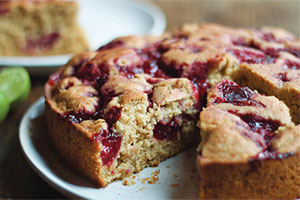Two Sisters, a Giraffe and the Plant-based Revolution

Lila Pitcher chats with the two sisters who, along with Aotearoa’s most recognisable giraffe, are on a mission to educate the nation’s kids on the power of plant-based eating.
It’s 11am, I indulge in a late-morning coffee as two friendly faces pop up on my computer.
Despite being divided by the (ever-present) laptop screen, I recognise Margo and Rosa
Flanagan instantly from the recipe books in my kitchen and food reels I’ve been watching on
social media. In the past years, Two Raw Sisters have turned Aotearoa’s cooking world on
its head by making plants sexy to a country that has long preferred meat.
Now — three successful books, an app, and a programme of regular workshops later — they
tackle a new project to help connect tamariki with food by touring with New Zealanders’
favourite educator: Harold the Giraffe. During our half-hour chat, I delve a little deeper into
the sisters’ new challenge, their hopes for the initiative, and how it potentially represents the
start of a new relationship between children and food.
“We’ve wanted to get into the school sector for a long time,” admits Margo. “We believe if we can educate children on incorporating whole, unprocessed ingredients into their lives from a young age, it will have a ripple effect on their future.”
And what better way to put a foot in the door than work alongside New Zealand’s most famous giraffe, Harold? The life-size mascot for Life Education Trust has been educating kids on a range of topics since 1991, including sex education, drugs, and food.
Now, Harold is accompanied by the Flanagan sisters as he tours schools around Aotearoa. It’s a win-win for both sides: while the sisters connect with Aotearoa’s young ones, the Life Education Trust is refreshed by the sisters’ progressive take on cooking.
“Times have changed,” Rosa explains “When we were at school, we were only taught about the food pyramid and hardly talked about nutrition.”
A desire to change the way we talk about food informs the sisters’ workshops. During the
one-hour sessions, Margo and Rosa lead tamariki through two recipes which the children
prepare entirely on their own. Throughout, the sisters offer some background on what
nutrients the recipes contain, why they can help them perform at school, and how their
whanau can join in on the fun.
Later, the children also get to taste the finished product.
It’s easy to be seduced by Two Raw Sisters’ perspective on food. They work towards making
the plant-based diet as inclusive as possible, far from the stereotype of a strict, guilt-inducing lifestyle.
“Rosa and I, we’re not vegan or even vegetarian — and our business encompasses all
eaters welcome’, Margo explains. “At the moment, a lot of whānau start their meals with their meat. Instead of the veggies being on the side, we ask ourselves how we can make plants the centrepiece.”
With that in mind, most might ascribe the Two Raw Sisters diet to flexitarianism — a desire
to reduce animal products without completely giving them up.
Unsurprisingly, this diet has seen an immense rise in the past years. A 2020 Euromonitor Health and Nutrition survey
revealed 42% of people internationally consider themselves flexitarian. This inclusive perspective on the diet has been essential to Two Raw Sisters’ business growth and
enabled them to connect with a wide audience range.
While they make sure anyone can use their recipes, they admit often not needing the meat. “A lot of the time, we can’t be bothered making the meat aspect because the plants are full of textures and flavours — interesting and filling enough to have on their own”.
The same Euromonitor study also showed children and teenagers especially are shaping the demand for plant-based foods: “Younger generations are increasingly looking for food
options that are healthier and more ethical and they associate these features with plant-
based options”.
In fact, using a relaxed and inviting perspective on food has helped make plants more attractive to the children, the sisters explain. “The reason we welcome all eaters is because it gives it a more relaxed approach — kids often get turned away if you tell them they have to cut out something. They’re also afraid of
food being boring.”
So, how do you make food exciting to children who can easily be picky about what they eat? I asked the sisters if they used classic strategies to entice the children (cue Potato Volcano
and the classic Clown Face) or if the sessions ran pretty similarly to their adult workshops.
“I seriously think it’s about getting them in the kitchen and letting them do it themselves,”
says Margot. Rosa agrees: “Sometimes, kids will say they don’t like specific ingredients. Instead of cutting them out, I tell them to smell it, look at it, and invite them to taste it.”
This multi-sensorial experience of food is becoming more and more important. TasteEd, a
UK business tailored to connecting younger ones to food, explains it’s not unlikely for
children to have never tasted a fresh tomato nor held an onion. This lack of experimenting with ingredients generally leads to a diet defined primarily by processed foods and ready-
made meals known to contribute to a variety of health issues including obesity.
New Zealand’s 5+ A Day charitable trust, a collaborator on the project, adds to the importance of connecting with ingredients, explaining that children are more interested in eating their veggies and fruit if they can smell and touch them.
This is why Margo and Rosa encourage parents, as they prepare the next family meal, to
think about including children in the preparation as well as making the experience as interactive as possible. “I think a lot of parents, when cooking, have the mentality (and I’m the same!) that it’s 10-
times faster to do it themselves,” Margo says, with a laugh. “But actually, taking the time to include the children means they know what is in the dish, learn about the ingredients, and
are more likely to eat their food.”
In the same way Two Raw Sisters break down barriers by catering to a range of dietary preferences, they also want to be inclusive to different socio-economic situations. “A lot of people use health foods that are super expensive and hard to find. I think that’s one of the reasons people see plant-based foods as exclusive and unsustainable in the long- term.”
This is an important point to consider: almost one in five children in Aotearoa experience
severe to moderate food insecurity. Margo explains that, for low income families, buying
vegetables and fruits just isn’t a priority. “Why would they buy a broccoli that costs three dollars, when they can buy 30-second noodles cheaper?”
Educating people on the options that exist to cook nutrient dense yet affordable recipes is one of the sisters’ main objectives. When creating a dish for their books, Two Raw Sisters always use a list of pantry ingredients most families will already own. This list is introduced during the workshops, and children are asked to put up their hands if they don’t know the item. Thankfully, the sisters found tamariki generally had the ingredients at home, but also
offered an easy solution if they didn’t: substituting.
“There are endless options if you don’t have an item,” explains Rosa. “Instead of using expensive nuts, you can use seeds; instead of kumara, use pumpkin. We encourage the kids to replace ingredients and have also been teaching them to guesstimate
measurements.”
In the future, Rosa and Margo hope to work closely with families suffering from food
insecurity to introduce them to healthy and nourishing foods on a low budget. While being able to buy the ingredients is one thing, fueling a child’s body is another. It’s not uncommon to hear claims that plant-based meals don’t contain the nutrients and energy necessary to run an adult body, let alone a growing child’s. Rosa, who suffered from low bone density as an athlete before turning to a plant-based diet, explains that countering these myths is a big part of the workshops.
“We ask the kids, ‘Who loves sport? Who loves music? Who wants to fuel their body properly so they can perform well for their activities and school?’”.
According to the sisters, speaking about the benefits of plant-based foods has made a great difference in helping children understand that eating is about more than flavour. “We always use the analogy of a car,” Margo explains. “If you put diesel in a petrol car, it’s going to break. Similarly, when you put the wrong fuel in your body (processed foods, for instance), it will start breaking down over time and show through your hair, skin, energy levels.”
Studies have shown that eating plant-based food poses no more risk than any other diet. In fact, plant-based diets have been associated with leaner body weights and a lowered exposure to diabetes, heart disease, hypertension and obesity. The New Zealand Ministry of Health states that “it is possible for children and young people to obtain all essential nutrients from a carefully planned vegetarian (including vegan) diet”. It simply takes some preparation to make sure tamariki are getting sufficient levels of nutrients — in particular B12, which is the only vitamin that cannot be found in vegetables and fruit.
Of course, I couldn’t chat to the sisters without asking about my childhood obsession (and the source of many dentist trips): dessert. Margo, being the sweet recipe expert, dished out a few suggestions on making a healthy closing course. “We have a peanut butter and banana slice in our second book, All Eaters Welcome, that’s definitely a favourite. Literally just peanut butter and bananas.” Undoubtedly, Margo and Rosa’s tour is already providing a heap of positive benefits for children and their families (and the environment, as younger generations limit their meat and dairy consumption). However, the sisters are realistic about their impact. “It’s difficult; we have to realise we’re not going to necessarily make a difference to every single kid out there.
We want everyone to take our lessons on board and go home to show their parents. In reality, that’s not necessarily going to happen.” While these reservations are understandable, it is clear that these workshops are laying the foundations for a healthier and greener Aotearoa. By continuously connecting with the communities around them, Two Raw Sisters are changing the image of the kiwi eater, giving us a glimpse of a future where New Zealanders are known not just for steak and cheese but for colourful, creative plant-based plates.
If you and your family are interested in the sisters’ tour with Harold the Giraffe, you can find out more on the Life Education Trust website (www.lifeeducation.org.nz). For a selection of indulgent recipes for wee ones and parents alike, check out the Two Raw Sisters app,
website (tworawsisters.com), and cookbooks.
Aotearoa Vegan and Plant Based Living Magazine
This article was sourced from the Winter 2022 edition of The Vegan Society magazine.
Order your own current copy in print or pdf or browse past editions.
Disclaimer
The articles we present in our magazine and blog have been written by many authors and are are not necessarily the views and policies of the Vegan Society.
Enjoyed reading this? We think you'll enjoy these articles:
What’s in a Trademark?
What’s in a Trademark? 29 March 2024 The Vegan Society As more companies start to become more aware of the ingredients in …
NZ Vegan Chocolate Awards 2024
2024 NZ Vegan Chocolate Awards 25th March 2024 The Vegan Society One of the most wonderful foods our planet has to offer …
Plum and Lime Cake
Liked this? We think you’ll enjoy these recipes: Katsu Tofu Katsu Tofu The Vegan BBQ The Vegan BBQ 1 2 3 … …




